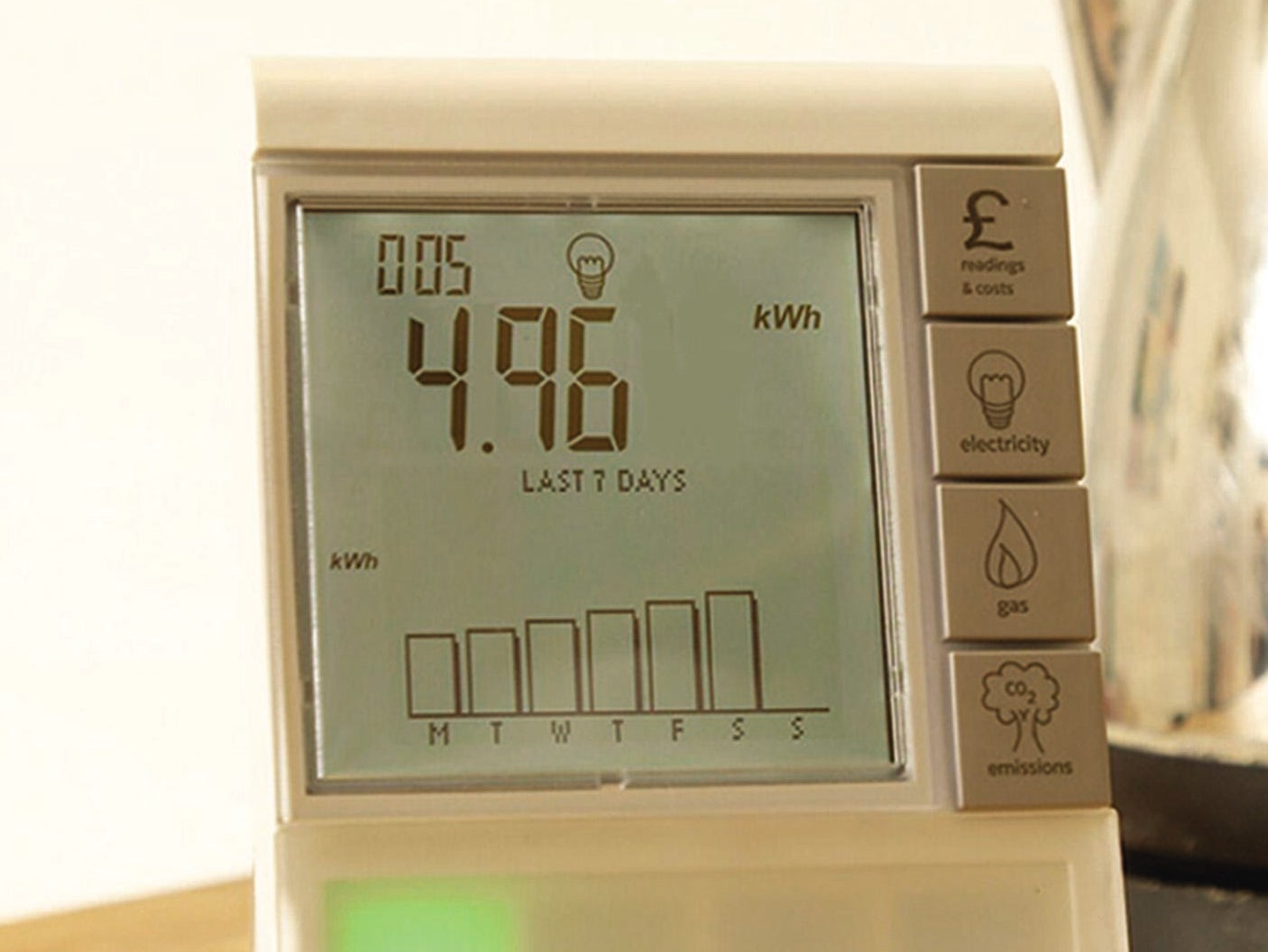Smart meters to cut energy bills by just £11 a year, MPs say
The project to instal 53 million smart meters across Britain is running over time and over budget

Your support helps us to tell the story
From reproductive rights to climate change to Big Tech, The Independent is on the ground when the story is developing. Whether it's investigating the financials of Elon Musk's pro-Trump PAC or producing our latest documentary, 'The A Word', which shines a light on the American women fighting for reproductive rights, we know how important it is to parse out the facts from the messaging.
At such a critical moment in US history, we need reporters on the ground. Your donation allows us to keep sending journalists to speak to both sides of the story.
The Independent is trusted by Americans across the entire political spectrum. And unlike many other quality news outlets, we choose not to lock Americans out of our reporting and analysis with paywalls. We believe quality journalism should be available to everyone, paid for by those who can afford it.
Your support makes all the difference.Smart meters will save people an average of just £11 a year on their energy bills, according to MPs.
The new figure emerged after a cross-parliamentary group criticised the £11bn project to instal 53 million devices in homes and small businesses by 2020.
It was hoped that the rollout of smart meters across Britain would lead to an expected saving on an annual dual fuel bill of £26.
This saving has now more than halved because of delays and cost increases, with installation costing £1bn more than planned.
Suppliers have fallen behind schedule, with just over 11 million smart meters reported to have been operational by March 2018.
Government predictions of customer savings were also inflated, outdated and “based on a number of questionable assumptions of personal, industry and environmental savings”, according to the British Infastructure Group (BIG).
Most of the savings will be made by energy firms, even though most of the project was funded by customers through higher bills, it was claimed.
“The rollout is at serious risk of becoming yet another large scale public infrastructure project delivered well over time and budget, and which fails to provide energy customers with a meaningful return on their investment,” said Grant Shapps, the chair of BIG.
“This report ... calls on the UK government to immediately review the progress of rollout, and intervene to tackle its points of failure and risk.”
The group also criticised suppliers for continuing to instal obsolete first-generation smart meters until January 2019, well past the November 2016 deadline.
Some suppliers have been known to use “scare tactics” to convince customers to accept a meter, according to BIG.
More than half of smart meters go “dumb” after switching fuel provider and it is estimated that as many as 10 per cent of meters do not work properly because of poor mobile networks.
The government began preparations for the rollout of energy smart meters in 2008 with the aim of helping consumers to reduce energy use and suppliers manage demand more efficiently.
In May 2013 a revised timetable suggested the smart meters would be installed by the end of 2020.
That target that is now “almost certain” to be missed, according to the report, because suppliers are only managing to instal around 420,000 a month.
BIG recommends reviewing the timetable and realistic savings, tasking Ofgem to ensure savings are passed on to customers, and introducing automatic compensation for malfunctioning meters.
The report says: “BIG fully supports the rationale behind the energy smart meter rollout, and the goals it seeks to achieve.
“With its recommendations implemented and continued close oversight, BIG believes that the rollout can successfully help to usher in a new wave of smart technology, and fundamentally transform energy use in the country.”
Robert Cheesewright from Smart Energy GB, the independent firm publicising the rollout, said the introduction of smart meters is a “vital investment for Great Britain, leading to savings that will outweigh the costs by billions of pounds”.
“The government and Ofgem have been clear that they expect energy suppliers to pass these savings on to customers,” he said. “The alternative to smart meters is an expensive and outdated analogue system with customers facing the uncertainty of estimated and inaccurate energy bills.”
The project by the Department for Business, Energy and Industrial Strategy (BEIS) is already being investigated for a third time by the National Audit Office, the public spending watchdog.
Press Association
Join our commenting forum
Join thought-provoking conversations, follow other Independent readers and see their replies
Comments